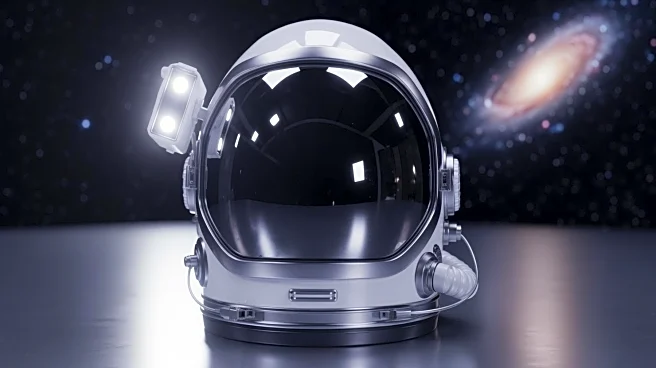What's Happening?
Two Russian cosmonauts, Sergey Ryzhikov and Alexey Zubritsky, conducted a spacewalk outside the International Space Station (ISS) as part of Expedition 73. The spacewalk lasted six hours and involved installing
a molecular beam experiment on the Nauka Multipurpose Laboratory Module and retrieving a camera from the exterior of the orbiting complex. The cosmonauts were supported by the European Robotic Arm, operated by cosmonaut Oleg Platonov from inside the space station. The experiment aims to demonstrate the capability to produce thin materials in microgravity, which could be used in semiconductors. This spacewalk marked the second for Expedition 73 and the 276th in support of the ISS's assembly and maintenance since 1998.
Why It's Important?
The successful completion of the spacewalk by Russian cosmonauts highlights ongoing international collaboration in space exploration and research. The installation of the molecular beam experiment is significant as it could lead to advancements in material science, particularly in the production of semiconductors. Such developments have the potential to impact various industries, including technology and manufacturing, by enabling the creation of materials that are difficult to produce on Earth. Additionally, the spacewalk underscores the importance of maintaining and upgrading the ISS, which serves as a critical platform for scientific research and international cooperation in space.
What's Next?
Following the spacewalk, the ISS crew will continue to monitor the installed experiment to assess its performance and gather data. The results could inform future missions and experiments aimed at leveraging microgravity for material production. As international partners continue to collaborate on the ISS, further spacewalks and maintenance activities are expected to ensure the station's operational capabilities. The ongoing research conducted on the ISS may lead to new technological innovations and strengthen international ties in space exploration.
Beyond the Headlines
The spacewalk by Russian cosmonauts not only contributes to scientific advancements but also reflects the geopolitical dynamics of space exploration. Despite tensions on Earth, space remains a domain where international cooperation can thrive, fostering peaceful relations and shared goals. The ability to conduct complex operations in space also highlights the technological prowess and expertise of the participating nations, potentially influencing global perceptions and strategic partnerships.











